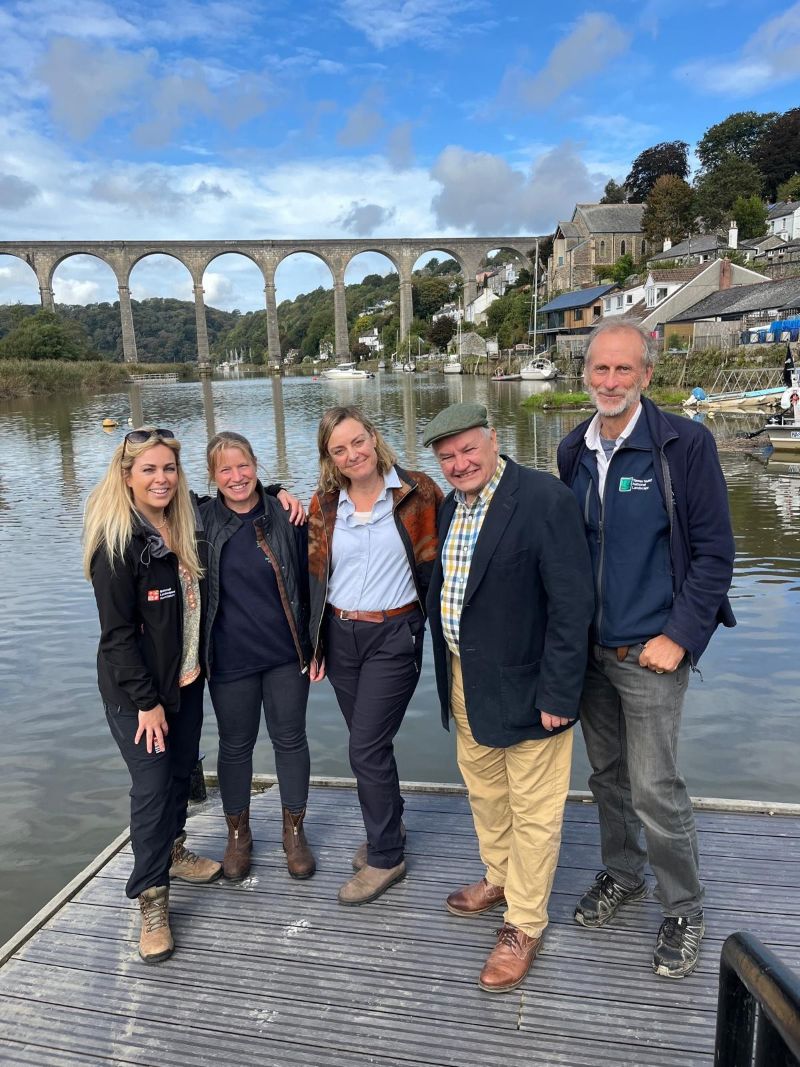Landmark Visit to the Tamar Valley Highlights Importance of Working Together for Nature
Last week, the Tamar Valley National Landscape welcomed Vanessa Rowlands, Chair of National Parks England, and Philip Hygate, Chair of the National Landscapes Association, in a landmark visit marking the first time the two Chairs have visited a protected landscape together.

During their time in the Tamar Valley, the Chairs explored a range of projects demonstrating how the landscape is delivering for people, place, nature and climate, including:
The Calstock Ferry – a trip on the solar-powered ferry with Skipper Will Mattos, sharing stories of the river and the ferry’s reintroduction through the Tamara Scheme, supported by The National Lottery Heritage Fund.
Calstock Wetlands – a guided walk with Pete Thompson (Tamar Community Trust), discussing biodiversity, natural flood solutions and climate resilience, as part of a partnership project led and funded by the Environment Agency.
Okel Tor Mine – a tour with custodian Jon Tully, exploring links between heritage restoration and biodiversity, and the role of Defra’s Farming in Protected Landscapes (FiPL) programme.
Harewood Farm – a visit with custodian Jo Tytherleigh, seeing flourishing wildflower meadows, sustainable farming and new land management approaches, also supported by FiPL — rounded off with a homemade cream tea using local produce.


Will Darwall, Manager of the Tamar Valley National Landscape, said:
“It was an honour to host Vanessa and Philip and to showcase the breadth of work happening here in the Tamar Valley. Collaboration across protected landscapes has never been more important, the challenges we face for nature, climate and communities go far beyond boundaries. This visit marks an exciting step towards closer working between National Landscapes, National Parks and National Trails.”
The visit highlights the close links between England’s National Landscapes, National Parks and National Trails, three designations that were created together through the National Parks and Access to the Countryside Act 1949. The Act was introduced in the wake of the Second World War to protect beautiful landscapes, open up public access to nature, and support the nation’s health and wellbeing – principles that remain at the heart of these organisations today.

